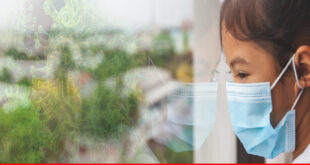“Pakistan possesses huge potential to fetch forex through export of herbal and other alternative medicines”
Alternative Medicine is a medicine that is outside the mainstream of Western medicine. Alternative medicines exist in all cultures to sum degrees and terms such as traditional medicines, indigenous medicines, folk medicines, holistic medicines and oriental medicines are used to describe such practice. Date back 100 or even thousands of years it is depending on the country and culture concerned. Alternative medicine is a comprehensive term applied to all methods of treating diseases, which aim at co-operating with the natural forces and defensive mechanism of the body.
The government here provides a complete range of distance learning programs in Alternative Medicine, Unani, Ayurvedic (Science of the Life), Herbal Spagyric Science, Electropathy/Electro Homoeopathy, Holistic Nutrition, Holistic Medicine, Nutritional Medicine, Naturopathy, Cupping Therapy, Massage/Touch Therapy, Hydropathy/Hydrotherapy, Magnatic Therapy, Radisthesia, Reiki, Oriental Medicine, Acupressure, Reflexology, Chiropracter and Chromotherapy unmatched and unrivaled by any other heeling way that is recognized by United Nations & World Health Organization (WHO).
Care Marketing is a health care company dealing in, healthcare supplements and herbal medicine. Starting in 1996, Care Marketing in collaboration with European and Taiwan based companies, M/s Enzypharm, Bional international Netherlands and Biozyme biotechnology Taiwan introduced a range of Phytotherapeutics in Pakistan.
Ms Shamim Akhtar, who is Chairperson of the Lahore Chamber of Commerce and Industry (LCCI)’s Committee on Alternative Medicines and also Chief Executive Officer of Care Marketing, told PAGE that they always believe in nature and they practice nature. She said, Care Marketing have completed a number of research projects on human health. These research projects include: comparative study of oral enzyme vs injectable in patients of epilepsy, double blind placebo controlled study of Hypericumperforatum and passionflower in patients of anxiety and depression, research on treatment of arthritis with phytomedicineAtrisin capsule in 5 different medical centers at Lahore.
To raise awareness on the importance of food and lifestyle modification for health we have collaborated with “Holistic health awareness movement” and jointly organize various seminars and social media campaign to bring people close to nature, she said.
Highlighting the objectives of LCCI’s body on alternative health, she said this body provides a platform at chamber level where businesses of related health sector can interact with each other and make collective efforts for the development and growth of alternative medicine.
Elaborating, Shamim said, regulations are important and necessary for extending facilitation in running the businesses effectively and smoothly. However, if regulations are made ignoring few important facts accepted worldover and some basic principles of doing justice, such regulations create chaos and not accepted, she added.
Shamim said so far a lot of work has been carried out by Drug Regulatory Authority (DRA) about making new regulations without consulting stakeholders. We believe that new regulations will be imposed by DRA as a surprise and would create great difficulties for people who are associated with the business of herbal, homoeo medicines or food supplements, as manufacturers, importers.
“We support that alternative health sector should be regulated and rules of the game must be made in line with the international practices,” she said.
Keeping in view the global scenario, Shamim said, alternative health sector products cannot and should not be regulated by the Drug Act meant for Allopathic/Chemical products. So there should be separate act regulating alternative medicines health and OTC products to avoid any regulatory conflict between different disciplines of treatment. There are many examples of developed and developing countries who are regulating alternative health sector, she said.
To a question, Shamim said, “Over the last few decades, there has been a considerable interest worldwide in traditional medicine/complementary and alternative medicine (TCAM) particularly in herbal products. The World Health Organization also advocates the important role of alternative and traditional medicines in preventive, promotive and curative health, especially in developing countries and encourages member states to support traditional medicines to and plan for, formulation of policies with appropriate regulations, she added.
Globally, Shamim said, there is a rising trend to shift resources from allopathic to traditional healthcare systems. The global market estimates to surge US$ 5 trillion by 2050. About 12-percent of Pakistani flora is used in medicines and more than 300 medicinal plants are traded. Ten leading Dawakhanas (Herbal manufacturers) of Pakistan annually consume more than 2 million kg of 200 medicinal plants while its consumption increased multifold in the last two decades, she said, adding: “Pakistan possesses huge potential to fetch forex through export of herbal and other alternative medicines.”
To a query, Shamim said, almost all the medicinal plants in Pakistan are collected from the wild. Local collectors are unaware of the best collection procedures. Medicinal plants from the sites of collection to the national and international markets pass through various middlemen. Consequently, the prices of the crude drugs increase more than 100% along the trade chain. The rapid loss of floristic and cultural diversity, and the state of absolute material poverty of 30 percent of people in Pakistan, makes it urgent that we should find solutions to their problems and to take active roles in making decisions about the management of natural resources and about the legal status of their traditions and knowledge, she added.
According to her, sustainable supply of good quality medicinal plants can only be made possible through proper collection, conservation and cultivation. The last few decades have seen certain national and international policies for preserving and promoting traditional medicine sector but the progress of their implementation has been rather sluggish. The traditional medicines sector not only in Pakistan but also globally is confronted with challenges like recognition, uniform quality standard, education standards, evidence based research, safety and efficacy, rational use, herbal and drug interactions etc.
 PAGE Blog Business Weekly Magazine
PAGE Blog Business Weekly Magazine

